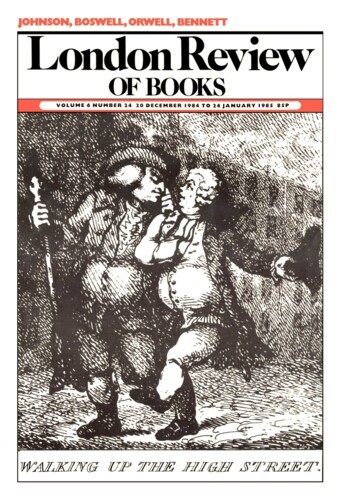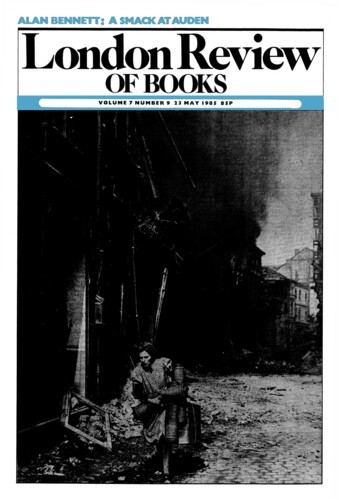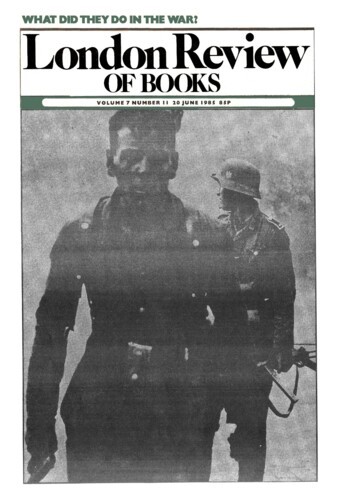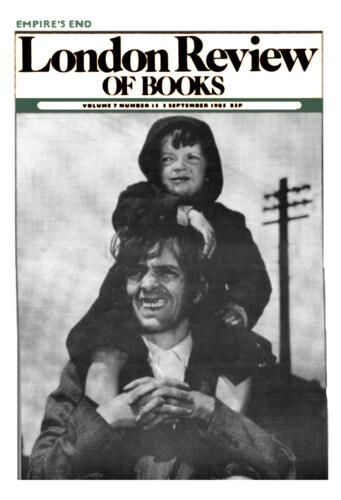Uncle Max
Patricia Craig, 20 December 1984
Like most biographers, Anthony Masters starts by announcing his subject’s date of birth; unlike most biographers, he gets it wrong. Charles Henry Maxwell Knight was born on 9 July 1900, not 4 September, under the sign of Cancer, not Virgo, however tempting it may be, for reasons which become clear in the course of the story, to assign him to the latter. Information about Maxwell Knight is pretty scanty and unreliable at most stages of his life, but a copy of his birth certificate may be obtained from the usual source, and was surely worth looking at; it is also more precise about Knight’s place of birth than Masters has chosen to be, specifying 199 Selhurst Road, South Norwood, Croydon, while he leaves it vaguely at Mitcham, Surrey.




